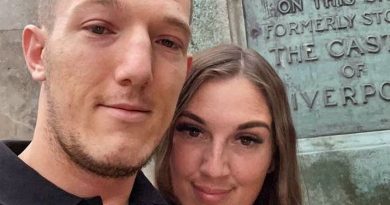Feds’s low-interest rates are subsidizing hedgies gamble implosions
More From:
Charles Gasparino
Let them eat Saturdays! Goldman CEO doesn’t care if you hate him
‘Share-plunge’ GameStop traders serve valuable function
GE’s Immelt-down: Harsh light on in-the-dark CEO’s failure
Wall Street’s luck has run out with Biden’s SEC head Gary Gensler
COVID-19 vaccine mess hinders Wall Street and NYC
The full postmortem on Archegos Capital won’t be written for a while, but one thing is already clear: This little-known hedge fund run by a trader named Bill Hwang has become the latest lightning rod for Wall Street greed run amok.
Greed may indeed be one of the backstories to this seemingly harmless “family office” (sounds quaint, doesn’t it?) run by an obscure money manager who appeared to come out of nowhere to become one the biggest fish on Wall Street.
But as regulators unravel the Archegos “mystery,” and get a fuller understanding of Hwang’s implosion, they will determine the root causes are far less complex than those mysterious stock swaps Hwang relied on to make his bets.
In fact, Wall Street greed may be just a byproduct of something bigger and more sinister: A Federal Reserve led by Jerome Powell that has been subsidizing such avarice well before the pandemic made zero-percent interest rates a way of life.
According to my Wall Street sources, trading desks certainly lusted to do business with Hwang. With interest rates so low, the only way to make real money is to service gunslingers like Hwang, a former trader with Tiger Management. They even overlooked that Hwang was dinged with civil insider-trading charges just a few years back.
“There’s about five or six guys like this out there and they are the Street’s best customers because of the volume of trading they do, and the products they do it with,” one veteran trader explained to me.
Hwang’s trading forte was a derivative known as the “total return swap,” designed to extrapolate big returns from even the simplest underlying investment. Traders can do this by putting relatively little money down and leveraging their positions. That means your gains (and losses) will be magnified.
He compounded his leverage seamlessly, it appears, by spreading his trades among different banks. Brokers like Credit Suisse had little insight into Hwang’s exposure and collateral he had pledged to, say, Goldman Sachs. This strategy led to massive returns for Hwang (and the banks) over the past six years, but it also set the stage for staggering losses with one wrong move.
That wrong move appears to stem from a rather anodyne source: ViacomCBS, the entertainment company behind “SpongeBob SquarePants” and “Criminal Minds.” Through his use of swaps, Hwang accumulated a massive “synthetic” long position in the broadcast company’s stock that didn’t mandate disclosure because he didn’t own the actual shares.
Viacom had seen a dramatic run-up in shares amid enthusiasm for its streaming service Paramount+. Viacom CEO Bob Bakish is a smart, practical man who knew the exuberance would peak, so he decided to cash in with a secondary sale of stock.
But investors, who hate being diluted, ran for the exits. And the fuse on the keg created by Archegos was lit: Hwang’s leveraged long position cratered, and then he faced margin calls on other positions as banks began to tally up his losses and their own.
His brokers held a meeting on how to unwind his positions in an orderly way. Credit Suisse urged patience, but others pounced.
Goldman led the way selling out Hwang’s positions, then Morgan Stanley. The Americans minimized their losses while Credit Suisse and to an extent Japanese bank Nomura are still counting them as this column goes to press. The whisper number on the Street is that Credit Suisse is on the hook for as much as $5 billion and may have to raise capital, thanks to Archegos and smaller losses it suffered last month from exposure to failed finance startup Greensill.
The amount of wealth Hwang accumulated and then destroyed appears unprecedented. At its height, Hwang’s “family office” valued its assets under management (AUM) at an estimated $10 billion, most of it his fortune. But as Fox Business’ Lydia Moynihan has reported, a private research report completed in 2014 showed he was then worth less than $1 billion.
If accurate, that’s a 900 percent increase in AUM in just about seven years. Since it was nearly all his money and no outside cash, the growth would reflect returns unprecedented in the hedge-fund business. Ditto for his losses as some estimates of Hwang’s net worth now run south of $1 billion. (Archegos declined to comment).
Lefty Massachusetts Sen. Elizabeth Warren, the scourge of Wall Street, is already calling for more regulation of derivatives and more disclosure. She forgets that this type of risk-taking doesn’t just occur on the Street. Manias have flourished throughout history, and a common attribute isn’t a lack of disclosure — it’s the presence of easy money and people reaching for return because simple investments don’t cut it.
If Warren was intellectually honest, she would blame the Fed and Jerome Powell, who has been subsidizing risk-taking to levels not seen in recent history. He’s a gambler’s best friend.
Share this article:
Source: Read Full Article



